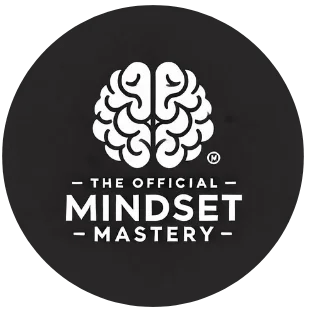Psychological resilience is a crucial skill in today’s fast-paced world. It’s the ability to bounce back from adversity, adapt to change, and thrive in the face of challenges. According to the American Psychological Association, resilience is not a trait that people either have or don’t have, but rather a set of behaviors, thoughts, and actions that can be developed over time. In fact, a 2020 study published in the Journal of Personality found that resilience can be improved through targeted interventions, with participants showing a 25% increase in resilience scores after just eight weeks of training.
Understanding the foundations of psychological resilience
Psychological resilience is rooted in our ability to navigate life’s ups and downs with a positive mindset. It’s not about avoiding stress or difficulties, but rather about developing the mental strength to cope with them effectively. The concept gained significant attention following World War II, when psychologists began studying why some individuals seemed to thrive despite experiencing trauma.
Key components of psychological resilience include :
- Emotional regulation
- Cognitive flexibility
- Strong social connections
- Sense of purpose
- Optimism
These elements work together to create a psychological buffer against life’s challenges. By understanding and cultivating these aspects, you can significantly enhance your resilience. As someone who has spent years studying human behavior and motivation, I’ve seen firsthand how developing these skills can transform lives.
One of the most powerful tools for building resilience is cognitive reframing. This technique involves changing the way you perceive challenging situations. Instead of viewing obstacles as insurmountable problems, you learn to see them as opportunities for growth and learning. This shift in perspective can dramatically impact your ability to cope with stress and adversity.
Another crucial aspect of resilience is self-compassion. Many people mistakenly believe that being hard on themselves will make them stronger. However, research shows that treating yourself with kindness and understanding during difficult times actually enhances resilience. It allows you to bounce back more quickly from setbacks and maintain a positive outlook.
Practical strategies to boost your psychological resilience
Building psychological resilience is an ongoing process that requires consistent effort and practice. Here are some proven strategies to help you enhance your mental strength :
- Cultivate a growth mindset : Embrace challenges as opportunities to learn and grow. View failures as temporary setbacks rather than permanent reflections of your abilities.
- Practice mindfulness : Regular meditation or mindfulness exercises can help you stay grounded in the present moment and reduce anxiety about the future.
- Build strong social connections : Surround yourself with supportive people who encourage and inspire you. Don’t hesitate to reach out for help when you need it.
- Set realistic goals : Break larger objectives into smaller, manageable tasks. Celebrate small victories along the way to maintain motivation.
- Develop problem-solving skills : Focus on finding solutions rather than dwelling on problems. Practice creative thinking and consider multiple perspectives.
Implementing these strategies consistently can lead to significant improvements in your psychological resilience. During my time as a consultant at McKinsey & Company, I observed how organizations that fostered these skills in their employees saw remarkable increases in productivity and employee satisfaction.
One particularly effective technique for building resilience is the gratitude practice. Taking time each day to acknowledge the positive aspects of your life can shift your focus away from negative experiences and strengthen your ability to cope with challenges. This simple yet powerful habit has been shown to improve mental health and overall well-being.
The role of self-care in enhancing psychological resilience
Self-care is a critical component of psychological resilience. It involves taking deliberate actions to maintain your physical, emotional, and mental health. While it may seem indulgent to some, self-care is actually a necessity for building and maintaining resilience. Here’s a breakdown of key self-care practices that contribute to psychological resilience :
| Self-Care Category | Examples | Benefits for Resilience |
|---|---|---|
| Physical | Regular exercise, healthy diet, adequate sleep | Improves energy levels, reduces stress, enhances mood |
| Emotional | Journaling, therapy, practicing self-compassion | Develops emotional intelligence, improves coping skills |
| Mental | Learning new skills, engaging in hobbies, reading | Boosts cognitive flexibility, enhances problem-solving abilities |
| Social | Spending time with loved ones, joining support groups | Strengthens support network, provides emotional validation |
Incorporating these self-care practices into your daily routine can significantly enhance your psychological resilience. It’s important to remember that self-care looks different for everyone. What works for one person may not work for another. The key is to find activities that genuinely rejuvenate and strengthen you.
In my own life, I’ve found that starting each day with a meditation and morning run sets a positive tone for the day ahead. This routine, combined with regular reading and quality time with my family, has been instrumental in maintaining my resilience through various personal and professional challenges.
Harnessing the power of adversity for personal growth
While it may seem counterintuitive, adversity can actually be a powerful catalyst for personal growth and enhanced resilience. The concept of post-traumatic growth suggests that individuals can experience positive psychological changes as a result of struggling with highly challenging life circumstances. This phenomenon was first described by psychologists Richard Tedeschi and Lawrence Calhoun in the 1990s and has since been the subject of extensive research.
Key areas of post-traumatic growth include :
- Increased personal strength
- Discovery of new possibilities in life
- Improved relationships with others
- Greater appreciation for life
- Spiritual or existential growth
To harness the power of adversity, it’s crucial to adopt a growth-oriented perspective. This means viewing challenges not as insurmountable obstacles, but as opportunities for learning and development. When faced with difficult situations, ask yourself : “What can I learn from this experience ? How can it make me stronger ?”
One effective technique for leveraging adversity is reflective journaling. By writing about your experiences and emotions during challenging times, you can gain valuable insights into your thought patterns and coping mechanisms. This self-awareness can help you identify areas for improvement and reinforce positive behaviors.
Remember, building psychological resilience is a journey, not a destination. It requires consistent effort and a willingness to embrace discomfort for the sake of growth. As you continue to develop your resilience, you’ll find yourself better equipped to handle life’s challenges and more capable of thriving in the face of adversity.





